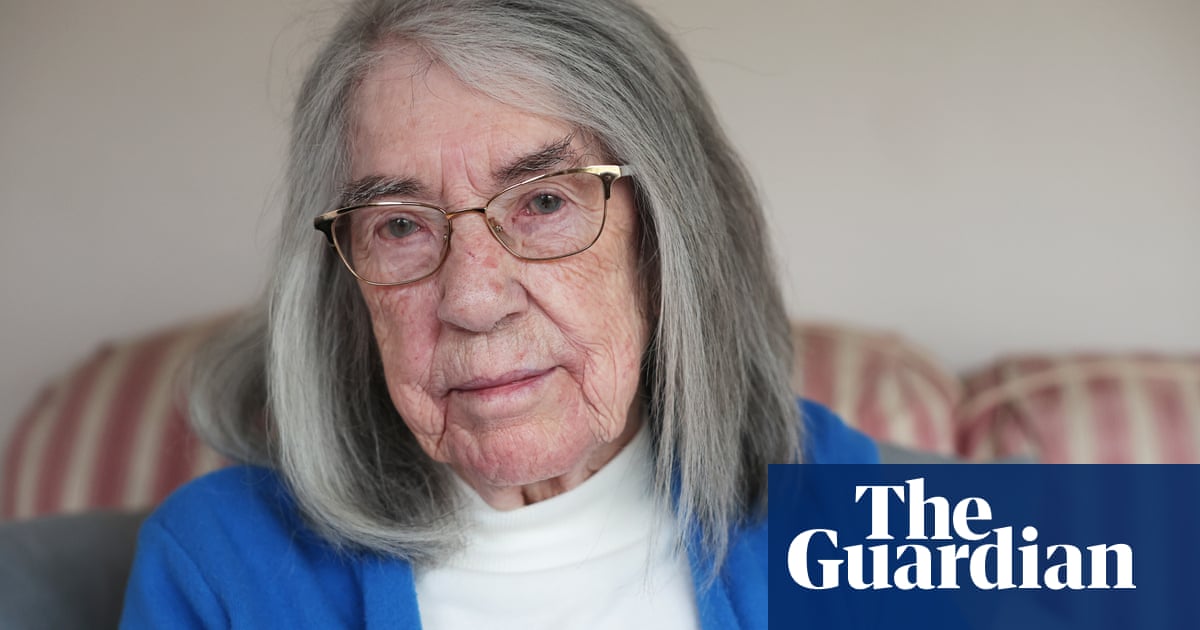
Until last year, Angela Jenner, 78, was getting only 86p a week as her state pension.
Jenner, a former PA from near Stowmarket, Suffolk, had built up almost no entitlement to a state pension in her own right.
“What I didn’t realise was that when my husband retired in July 2008 I should have automatically received 60% of the basic state pension,” she says. “This never happened, which I assume was a computer error by the Department for Work and Pensions.”
For more than 12 years she had been underpaid each week – and was owed £42,700 as a result.
After she heard on TV about the possibility of underpayments, she made a claim – and the result was an increase to £80.45 a week, and a lump sum covering the money she had missed out on since 2008.
“Fortunately, I have a small occupational pension but this could have made a huge difference to someone who didn’t have that,” she says.
Jenner is one of thousands of women who may collectively be owed more than £100m in state pension payments after being underpaid for years.
The problem affects women who reached state-pension age before 6 April 2016.
They fall under the older-style pension system, which enabled women with a reduced national insurance contributions record to claim a proportion of their husband’s state pension.
This amounted to 60%, or £80.45 of today’s basic state pension of £134.25 a week. Widows could also claim in some cases, alongside divorcees and women over 80 in receipt of a small pension.
However, although the uplift should have been automatically applied since 17 March 2008, before that, women had to apply to receive it, and many missed out because they were unaware of the rules.
Others, like Jenner, have been subject to DWP errors, and remained on a lower rate.
“If I hadn’t heard about the issue, I’d never have known,” says Jenner, who received her payout in September 2020, three months after making the claim.
She used the free tool from pension consultant Lane Clark & Peacock (LCP) to see if she could qualify, before contacting the DWP.
DWP staff were helpful, she says, and the process of making a claim was simple.
“The DWP says it’s working its way through cases but somebody could die before they realise they’re owed money,” she says.
Steve Webb, a former pensions minister and a partner at LCP, says: “The government is looking for those women who haven’t received the uplift since it became automatic, as that may be an administrative error on their part.”
However, he says that it is not seeking out those women who did not realise they could claim an increased pension pre-2008, and that tens of thousands of women could have missed out on increased payments for more than a decade.
“The government can’t expect women to know their precise entitlement,” he says.
“We’ve written to the [parliamentary] ombudsman, asking that it find a way to put things right.”
Anna Stevenson, a welfare benefit expert at the charity Turn2us, says the payouts could make an enormous difference to people’s lives. She says: “At least 1.3 million pension-age adults are currently in poverty – that’s more than one in 10 of our older population struggling with putting food on the table, keeping a roof over their head and battling away the growing threat of debt.
“Repaying this underpayment of pensions could make such meaningful improvements to people’s lives.”
She says the government should take responsibility for tracing those who qualify for more money.
“We urge the DWP to show leadership and take the onus to contact the people affected, otherwise people risk not being aware and falling through the net,” she says.
“In the meantime, anyone struggling with money should try to find out if they are eligible for this reimbursement, as well as for other pension-age benefits, and make a claim as soon as possible.”
The Department for Work and Pensions says: “We are aware of a number of cases where individuals have been underpaid state pension.
“We corrected our records and reimbursed those affected as soon as errors were identified. We are checking for further cases, and if any are found, awards will also be reviewed and any arrears paid.”
Are you able to claim?
You may be due a payout and increased state pension if you fall into the following scenarios:
You are a married woman who reached state pension age before April 2016 with a state pension that is less than 60% of your husband’s basic state pension (currently £80.45, based on the 2020-21 £134.25 a week).
You are a married woman whose husband turned 65 before 17 March 2008 but you did not realise you should get an increase in state pension, and so never claimed.
You are a widow whose pension was not increased when your husband died (you can potentially receive a full basic state pension, plus a percentage of your late husband’s additional state pension).
You are a widow and may have been underpaid while your husband was alive or you did not receive an increase when your husband died, based on his contributions.
You are a woman over 80 in receipt of a basic pension of less than £80.45. Whatever your marital status, check your entitlement. You may be entitled to a non-contributory state pension that is not currently based on your national insurance contributions record.
You are a divorced woman – particularly if you divorced post retirement – who is receiving a small pension and may benefit from your ex-husband’s NICs record.
You can raise a claim if you believe you may have been underpaid. You can check if you are owed any state pension by contacting the Pension Service, part of the Department for Work and Pensions, on 0800 731 0469. It has a team working on claims for state pension underpayments.
How far you can backdate claims depends on whether your husband reached 65 before 17 March 2008, in which case you can backdate 12 months. However, if he reached the state pension age after this date, when the uplift should have been automatic, you are eligible to claim the full amount you have been underpaid back to when your husband retired.
State pension allowances
How much you get as a state pension and what you need to do to qualify for the full sum both depend on when you were born.
Men born before 6 April 1951 and women born before 6 April 1953 can receive up to £134.25 a week from the state. The figure rises each year according to the government’s triple lock. The increase is linked to whichever is highest out of average earnings growth, the consumer prices index, and 2.5%.
For these pensioners to qualify for the full £134.25, they need to have 30 years’ worth of national insurance contributions or credits – these can be built up through working, through credits made to carers or the unemployed, or through voluntary payments.
On top of the basic state pension, there is also an additional state pension they may qualify for, which will pay out different sums, depending on how the individual accrued it.
Younger retirees get a different state pension, worth up to £175.20 a week. To qualify, you will usually need to have built up at least 10 years’ worth of national insurance payments during your working life. Again, this could be through contributions or credits.
You can increase how much you are entitled to by delaying claiming your pension. The delay must be for at least nine weeks after you reach state pension age but for every week you wait, you qualify for more cash later. For every nine weeks you delay, your pension rises by 1%. Delay for a year and you will get an extra £10.16 a week at the current pension rate.
You can find out what you are on track to get, and when it will be paid, by using the government’s online state pension forecast tool at gov.uk/check-state-pension.












